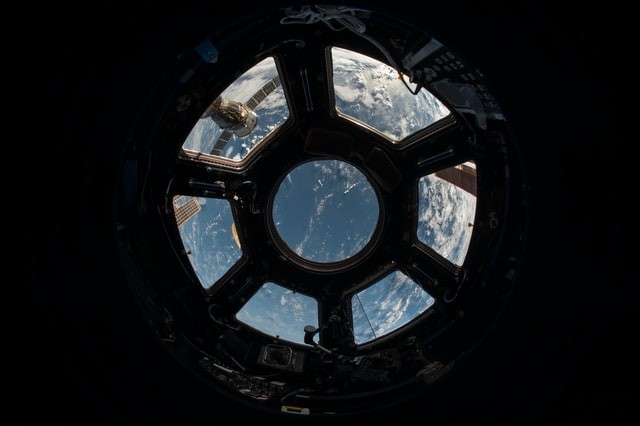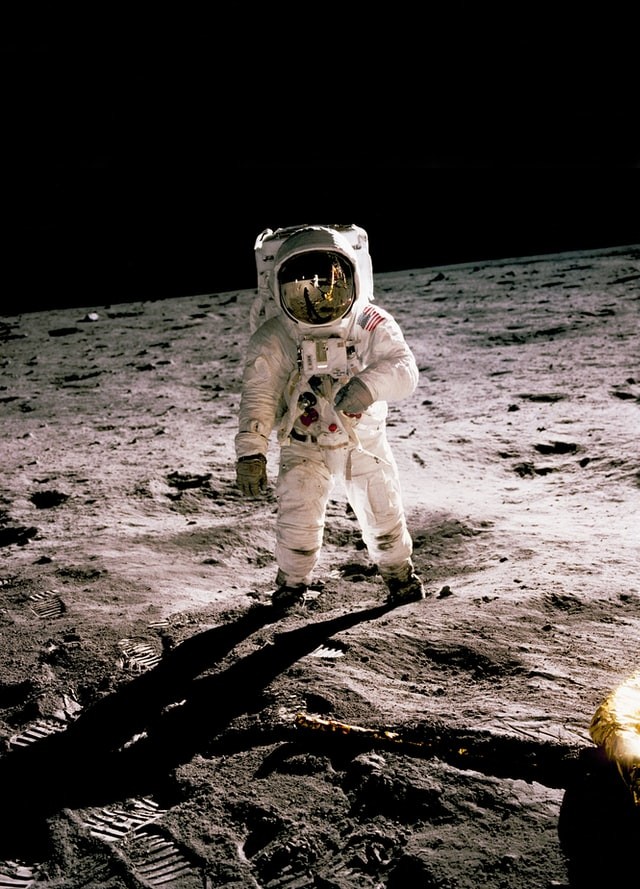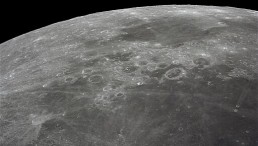Becoming an astronaut is a dream job for many people. Despite it being incredibly hard and challenging to get into the program, the prospects of exploring space are too exciting. Astronauts get to design, build, and test cutting-edge space technologies and conduct unprecedented studies.
No wonder that it takes many years to even become qualified to apply to NASA. It is all about dedication, focus, and effort. If you want to leave the orbit of Earth one day, the earlier you start preparing, the better.
NASA Job Requirements
Of course, it all starts with education. College is only a first step in the journey, but it is extremely important. In the 60s, astronauts were selected from the military with flight experience; nowadays they also have to be scientists.
College life is quite demanding on its own, let alone astronaut studies. Students may struggle with balancing their curriculum with other responsibilities, like work, or training. But do not get discouraged, there is always help out there. Students can ask for assistance or advice from professors, tutors, or classmates as well as trust a reliable yet cheap paper writing service with their assignments. The Internet is a valuable source of information, so why not use it? This is what makes getting an education now way easier than even 20 years before.
We covered studies, so what else are NASA requirements to apply for an astronaut position? Candidates need to:
● Be a U.S. citizen;
● Have a Master Degree in a STEM field from an accredited institution;
● Have 2 years of professional experience after getting a degree OR at least 1,000 hours of pilot-in-command flying time of jet;
● Pass astronaut physical.
Be cautious that previously BA was enough, but not anymore. Master's is a requirement. Yet, it can be met with other options, such as:
● 2 years (36 semester hours) of a doctoral program in a related STEM field;
● Finished Doctor of Medicine/Doctor of Osteopathic Medicine;
● Graduation from nationally recognized test pilot program.
One needs to remember that these are minimal requirements to apply. There will be thousands of other candidates that are as knowledgeable and skilled out there. The more training or practical experience one has in the related fields the better it is.
And yet, there is always a matter of luck. The last job posting for astronauts NASA did was in the year 2020. And they received 12,000 applications. So whether one gets in or not doesn't make them a failure.
For example, Clay Anderson applied 15 times to the program. And he got accepted only on the 15th try. Yet he persevered and became an astronaut.

STEM Degrees to Become an Astronaut
Of course, when NASA lists MA in STEM they do not look for just any degree. Usually, the relevant ones can be narrowed down to:
1. Engineering;
2. Biological Science;
3. Physical Science (Physics, Chemistry, Geology, etc);
4. Computer Science;
5. Mathematics.
These are 5 main branches of degrees to pursue. The exceptions are geography and aviation management. Also, candidates are divided into civilian and military ones. Military candidates have their own path, which is different in the training they receive. Here we focus on the civilian candidates.
Engineering
Engineering is a huge field in itself, one of the most relevant specializations to space travel is electrical engineering. After all, the shuttles and all research done in space rely on technology. And it is important to design, build, repair, or use it correctly.
So if you are excited about engineering, it is a great option to choose as a future astronaut. There is a large number of engineers that have been to space because they are innovators and problem solvers. Their education is all about finding a practical, simple, and elegant solution to a problem. There is hardly a more important skill in space than that.
For example, Buzz Aldrin is one of the engineer astronauts. And his expertise and problem-solving helped everyone to get home from the Moon. He noticed a broken switch on the lunar lander and fixed it with a felt-tip pen.
Biological Science
If you are more into biology, it is another excellent option to look into. Space travel concerns the way human bodies function in zero gravity as well as other types of flora and fauna. So one of the major tasks in space is conducting research (about 250 in 6 months on orbit).
These studies can help future space travelers as well as humans on Earth. For example, nowadays NASA conducts cancer-related studies up there.
Biology is a broad sphere to choose from. Peggy Whitson is an astronaut with a Ph.D. in Biochemistry. Her research explored the formation of kidney stones during space travel, as the risk grows due to calcium excess. Based on her study, she developed potassium citrate therapy that is still used.
Biochemistry looks into chemical changes in living organisms. Usually, scientists in this field work in labs and combine Biology and Chemistry in their work.
Physical Science
This sphere has a lot of options whether you are more into Physics, Chemistry, or Geology, for example. Those who prefer the first option can get a degree in Astrophysics.
This is a very reliable program as it explores space and combines not only Cosmology and Physics but also Chemistry and Math.
Another great program to choose is Geology. Harrison Schmitt is a famous geologist that is also one of the 12 people to walk the Moon.
He collected a rock sample that is still one of the most interesting things to come from the Moon. Scientists study it to get to know more about the history of the Moon. And geologists are a vital part of the Mars exploration program.
Computer Science
This one is an obvious yet very essential education for space travel. After all, the machinery needed both up there and here on Earth has to be properly programmed.
The ability to work with cutting-edge technologies, whether it is a robotic arm or shuttle, is what makes computer science so important. Computing powers space exploration. Steven Swanson is an astronaut with a doctorate in computer science that spent 195 in space in total and completed 5 spacewalks.
Mathematics
Mathematics alone probably won't be enough to be a candidate, but it is a great addition to other studies, like engineering or computer science. It can be a great starting point and is overall quite useful for all the programs mentioned above.
After all, it is impossible to become an excellent engineer, chemist, or software professional without knowledge of Math.
Physical Training
A college education is just the first step in this career. One also needs to fit strict physical requirements, such as:
● Excellent physical and mental health;
● 20/20 vision (including the correctable cases with achievable 20/20 after an operation);
● Blood pressure does not exceed 140/90 while sitting;
● Heights in the range of 58-76 inches.
If you are accepted into the program, you become an astronaut candidate that spends 2 years in basic training. It includes both theory and physical training.
After graduation, you can be assigned for a flight and train for a couple of years more. Flight experience is obligatory only if you want to be a commander or pilot. But it is desirable for any position in the team.
In Summary
Although it is a hard career to pursue, thousands of people are fascinated with the possible opportunities. If you are willing to put in years of effort and ready to study your whole life, it is very much possible to become an astronaut.
* This is a contributed article and this content does not necessarily represent the views of sciencetimes.com














![Earth's Quasi-Moon Kamo‘oalewa Could Originate From Lunar Surface Not Asteroid Belt [Study]](https://1721181113.rsc.cdn77.org/data/thumbs/full/53275/258/146/50/40/earths-quasi-moon-kamo-oalewa-could-originate-from-lunar-surface-not-asteroid-belt-study.png)
